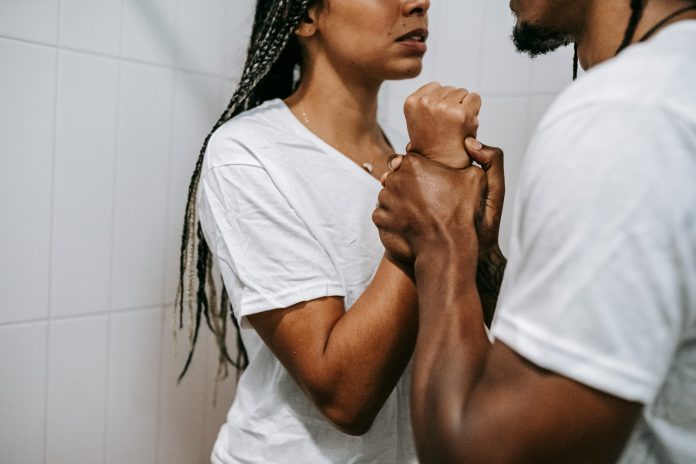With so much tragedy and suffering in the world, it’s disheartening to know that domestic violence is still a very real problem that some women are experiencing in their homes.
Domestic violence can come in many forms—emotional abuse, sexual abuse, financial abuse, and more.
According to a recent study published in the Nigerian Medical Journal titled “Prevalence and Correlates of Intimate Partner Violence Against Women in Nigeria,” about 28.8% of Nigerian women have experienced some form of intimate partner violence at least once in their lives.
Also, nearly one out of four women in Nigeria will experience domestic violence in their lifetime.
Anytime I hear stories of femicide by intimate partners, I always ask myself why the victims stayed in the relationship until they were killed. Well, it is possible that they didn’t see the red flags on time.
How to identify an abusive partner
Identifying an abusive partner can be challenging, as abusers can use various tactics to manipulate and control their partners. However, some signs of an abusive partner include:
Controlling behaviour A partner who tries to control what you do, who you see, and where you go may be exhibiting abusive behaviour.
about 28.8% of Nigerian women have experienced some form of intimate partner violence at least once in their lives
Emotional blackmail They might threaten to hurt themselves if they don’t get what they want, or they may try to make you feel guilty so that you stay with them.
Physical abuse This can include hitting, punching, kicking, flogging, choking, or other forms of physical violence.
Blaming language Abusers often shift blame and put their victims down by using phrases such as “It’s all your fault” or “You deserve this.”
Isolation Abusive partners may try to isolate their partner from friends and family. They may discourage you from seeing loved ones or even try to keep you from going to work or school.
Intimidation tactics If your partner starts intimidating you, either verbally or physically, this could be another sign of potential abuse. This includes threats, belittling comments, and shouting at you in order to get their way.
Unpredictable behaviour Abusers often have unpredictable behaviours—one day they might be loving and attentive, and the next day they might turn into someone completely different.
How to protect yourself from domestic violence
It is always better to build walls and boundaries than to suffer the consequences of letting abusers in. If you are experiencing any form of abuse or if you suspect that such abuse may occur, then you need to create a safety plan as follow:
Stay alert
Always pay attention to your surroundings. If anything feels amiss or makes you uncomfortable, move away or reach out for help immediately. If you are aware of anything that triggers the anger in your abuser, then avoid doing that. Always seek a way to maintain peace, but if that’s not working, then stay alert at all times.
Identify escape routes
Identify the best and fastest ways to flee out of the house whenever you are in danger. Whether it is the front door, back door, or window, ensure that there is no furniture blocking the path.
Create an emergency bag
If the conflict is always severe, then you might need to pack some essentials such as money, spare keys, important documents, and clothes into one bag. Then, hide the bag somewhere outside of your home (e.g, at a friend’s house). You will need it after fleeing from your abuser.
Gather your evidence
Keep detailed records of calls, emails, texts, pictures, videos, police reports, and other physical evidence of domestic violence situations. These can be used in court if necessary. Taking notes each time something occurs is also a helpful way to record progress while protecting yourself from future harm.
Build a support network
Start by making a list of people you trust and can reach out to for help. This could include close friends and family, health care providers, and domestic violence advocates. Save their numbers on your speed dial list in case of emergencies. Having a support system in place is crucial for your safety and emotional well-being.
File for divorce or separation
In some cases of domestic abuse, divorce or separation may be the best solution. So, if your life is constantly threatened, why not take a walk? You can seek custody of your children and spousal support.
Seek professional help
If you had a very traumatic experience in a past relationship, you might find it difficult to open your heart to love again. First, you need some time to heal, and you also need a therapist to guide you through the process. A professional may also provide further resources such as financial aid, emergency housing, etc. So do not be afraid to reach out for assistance!
Conclusion
According to Aisha Mirza, a domestic violence counsellor, it is not the bruises on the body that hurt. It is the wounds of the heart and the scars on the mind.
You may have experienced domestic violence, but don’t let it define your existence. Apart from seeking external help, it is equally important to delve deep within yourself. Your emotions can be your strongest support system on this journey. They can help you understand the extent of the abuse, its impact on you, and the path to healing.
Finally, to those who are still tolerating domestic violence, I pray that they find the courage to stand up and fight for their rights.
References:
• https:// www. ncbi .nlm.nih.gov/pmc/articles/PMC4295485
• https:// hawcdv.org/ get-help-now/safety-tips/protecting-yourself-from-violence/
• https:// www. beebehealthcare. org/health-hub/protecting-yourself-domestic-violence


